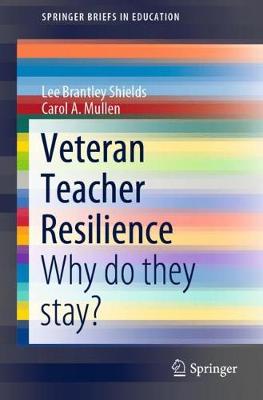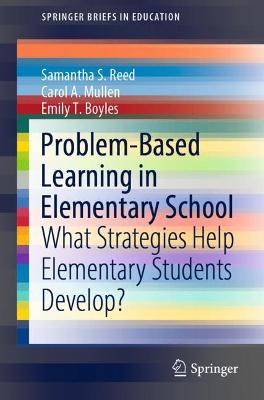SpringerBriefs in Education
2 total works
This book explores why veteran teachers choose to remain in the classroom, making teaching their life’s career. The authors felt compelled to interview veteran teachers to learn about their experiences, how they make meaning of their classrooms and schools, and in particular what can be known about the adversities they face and their resilience. Factors (individual and contextual) are uncovered that influence veteran teacher’s resiliency and adaptation from veteran teachers’ perspectives and the literature. Induction programs, professional development, and mentoring are also examined for their importance to the interviews and education.
Features of this book include:
- Focuses on veteran teacher resilience and why veteran teachers choose to remain in the classroom and teaching profession
- Uses an interview method involving veteran teachers that illuminates issues of resiliency and retention from their perspective
- Highlights 15 narrative accounts of veteran teachers tailored to their perceptions, experiences, and strategies for navigating barriers and overcoming challenge
- Combines conceptual frameworks, research results, interventions, and strategies
- Connects implications of the study and suggestions for future research to practice and policy
This book is for researchers interested in teacher resilience, particularly veteran teacher resilience and the study and development of it, as well as practitioners drawn to the same topic, with applicability to their fields. Anyone interested in resilience, particularly within demanding professional contexts and stressful situations, should find value.
"The focus on teacher resilience is original and it is an important aspect of why teachers might choose to stay in the profession. Teacher resilience is understudied and should provide useful knowledge to policymakers and education leaders on how to improve working conditions and increase efficacy. So much ink is spilled extolling why teachers exit the profession--there is a dearth of research on why they stay, which in my opinion is even more important than why they leave. This book makes an important contribution to the literature and will hopefully inform policy making and inspire others to conduct research on the subject."
Christopher H. Tienken, Associate Professor, Dept. of Education Leadership Management and Policy, Seton Hall University, South Orange, NJ, USA
"The topic is original. It seems there is much literature on new teachers and why they leave, but little on veteran teachers and why they stay. The topic and the reporting of the findings with suggestions for practices to be implemented in university programs as well as in K-12 schools is very useful. The format this book follows is actually a strong one for other researchers and students in doctoral programs."
Sandra Harris, Professor Emerita, Educational Leadership, Lamar University, Beaumont, Texas, USA
Problem-Based Learning in Elementary School
by Samantha S. Reed, Carol A. Mullen, and Emily T. Boyles
This book addresses Problem-based Learning (PBL) in elementary schools and reveals how this can promote elementary students' development in critical thinking, creativity, communication, collaboration, and citizenship, also known as the 5 Cs. Through teachers' interviews, the book explores which PBL strategies promote skills and knowledge gains when students collaboratively investigate authentic open-ended problems. It also uncovers peer-to-peer relational learning and other strategies used in PBL classrooms, and it examines their importance to public education.
The book paints a lively picture of student-centered learning, drawing upon frameworks, best practices, experiences, processes, strategies, and research results. Firsthand accounts of best practices in PBL instruction connect this pedagogy to theory, research, practice, and policy. It explores teacher instruction in the early years of schooling that purposefully fosters student-centered learning, real-world relevance, and collaboration in accordance with capacities expected of successful 21st century graduates. This book supports the implementation of PBL in elementary schools and promotes increased student engagement and achievement, as well as college and career readiness.
This book is of interest to practitioners seeking information about PBL pedagogies for elementary grades, such as teachers, teacher mentors and trainers, (school) leaders, and policymakers, as well as anyone interested in pedagogic strategies that advance critical thinking, creativity, communication, collaboration, and citizenship capacities.

